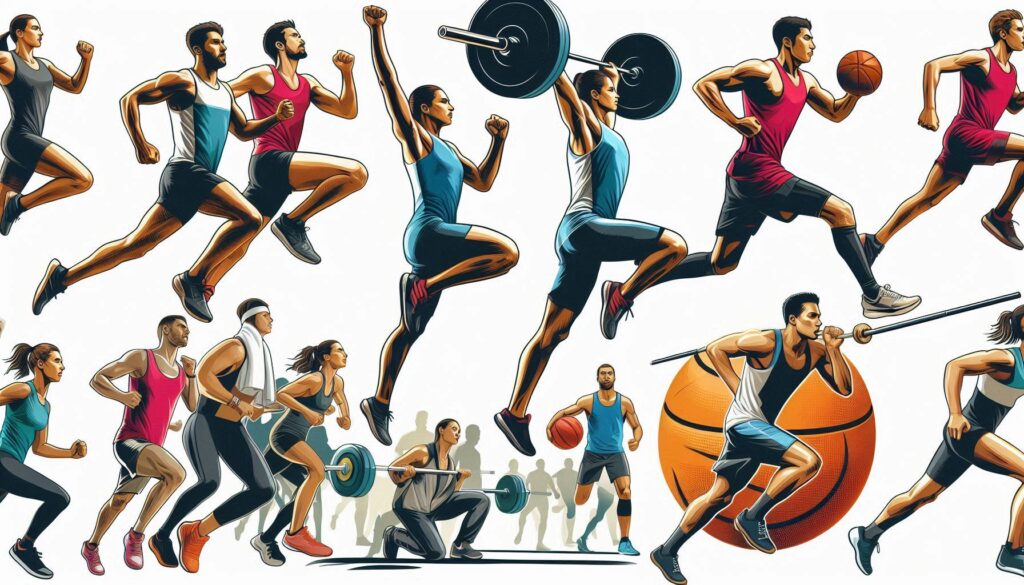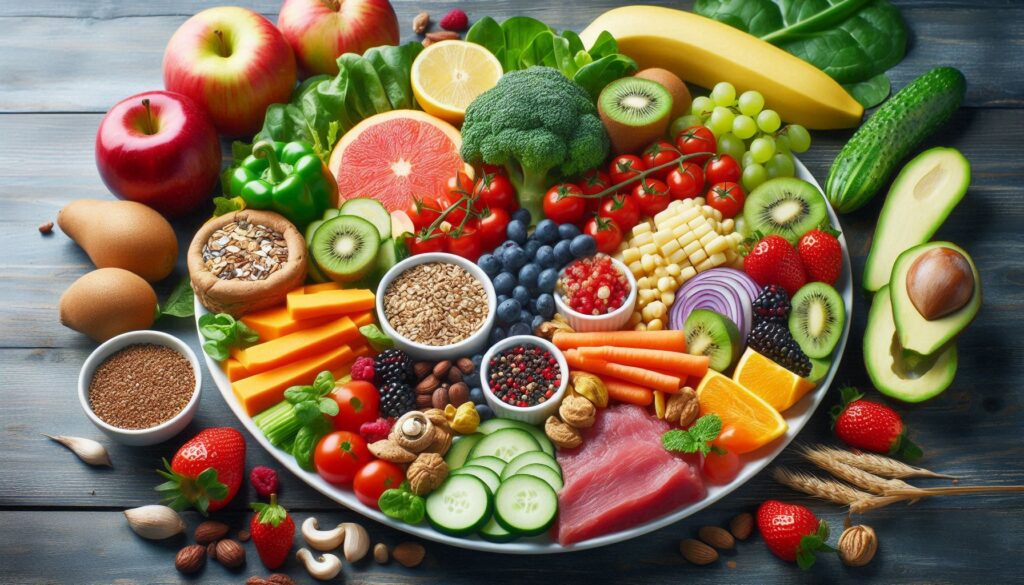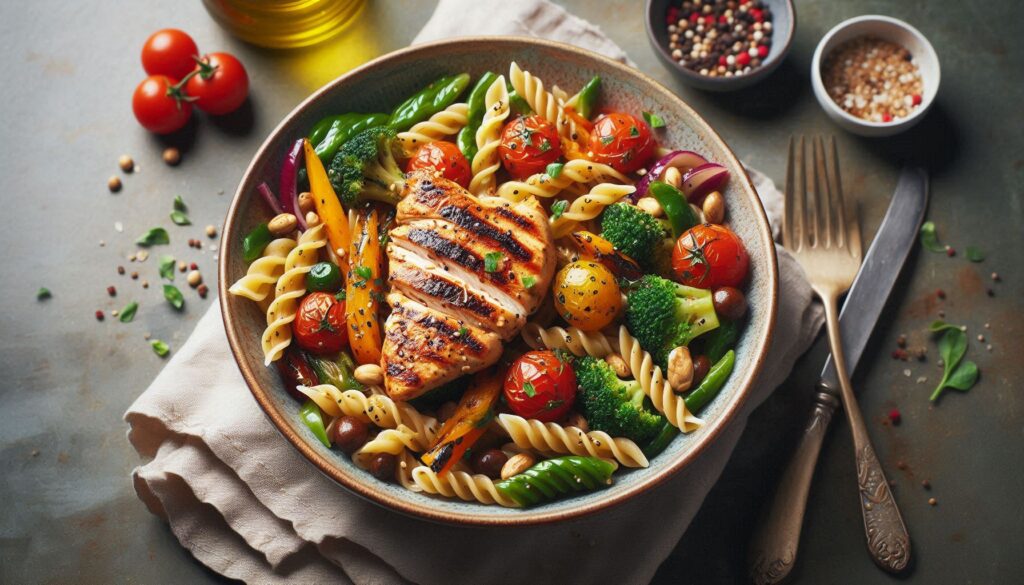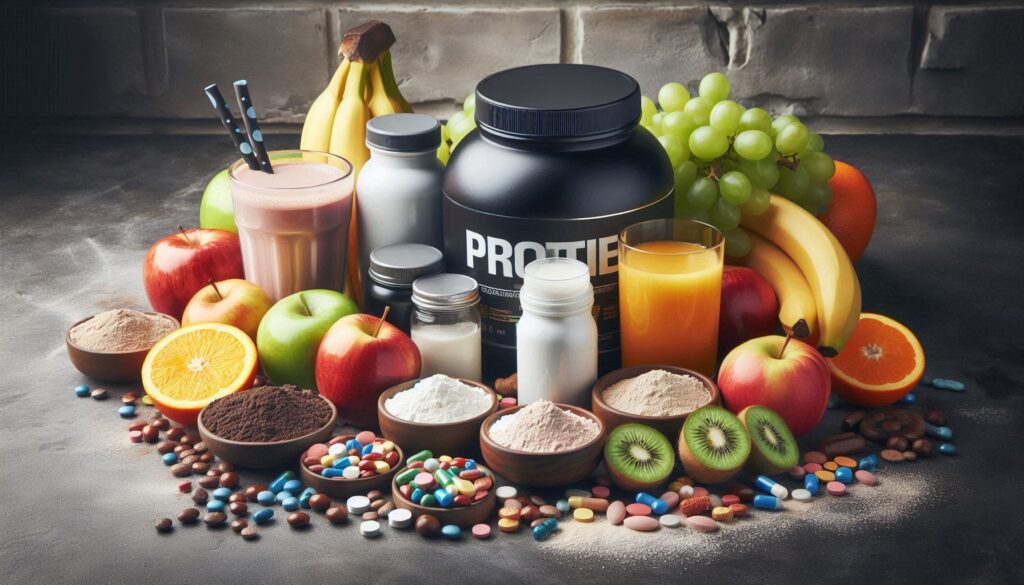
Article 15 of our Series “Nourishing Your Whole Self: The SaziBox Health Guide to Holistic Nutrition”
Welcome to this exciting instalment in our “Nourishing Your Whole Self” series, where we dive into the crucial role of nutrition in athletic performance. Whether you’re a seasoned pro or a weekend warrior, fueling your body with the right nutrients is key to achieving your goals, enhancing recovery, and preventing injuries. Let’s explore the science-backed strategies that will help you optimize your diet for peak athletic performance.
The Fuel for Your Fire

While training and dedication are paramount, optimal nutrition provides the foundation for athletic success. Think of food as the high-octane fuel that powers your engine. We’ll delve into carb loading, protein timing, hydration, and supplements – all critical components of an athlete’s nutritional toolbox.
Carb Loading: The Endurance Athlete’s Secret Weapon

Carb loading is a strategic approach to maximizing glycogen stores in your muscles and liver. Glycogen is your body’s primary source of energy during prolonged exercise.
- The Science: When you consume carbohydrates, your body breaks them down into glucose, which is then converted into glycogen and stored for later use. Carb loading ensures you have ample glycogen reserves to fuel your muscles during endurance events like marathons, cycling races, or triathlons.
- Timing is Key: Begin carb loading 3-4 days before your event, gradually increasing your carbohydrate intake while tapering your training volume.
- Carb-Rich Foods: Focus on complex carbohydrates like whole grains (pasta, rice, bread), starchy vegetables (potatoes, sweet potatoes), fruits, and low-fat dairy.
Read more
Interactive Element:
- Carb Loading Calculator: Input your weight and activity level to calculate your personalized carb-loading plan.
Carb Loading Calculator
Input your weight and activity level to calculate your personalized carb-loading plan.
Protein Timing: Rebuild and Recover

Protein is essential for building and repairing muscle tissue. Consuming protein at the right times can accelerate recovery and maximize gains.
- Pre-Workout: A small amount of protein (10-20 grams) before exercise can help prevent muscle breakdown.
- Post-Workout: The “golden window” for protein intake is within 30-60 minutes after exercise. Aim for 20-40 grams of protein to kickstart muscle repair and growth.
- Throughout the Day: Spread your protein intake throughout the day to support ongoing muscle protein synthesis. Aim for 1.2-2.0 grams of protein per kilogram of body weight, depending on your activity level and goals.
Protein-Rich Options:
- Animal-Based: Lean meats, poultry, fish, eggs, dairy products
- Plant-Based: Beans, lentils, tofu, tempeh, quinoa, nuts, and seeds.
Hydration: The Performance Enhancer

Dehydration can lead to fatigue, decreased performance, and even heat-related illness.
- Before Exercise: Start hydrating well in advance, aiming for 16-20 ounces of water 2-3 hours before exercise.
- During Exercise: Drink 7-10 ounces of fluid every 10-20 minutes. For intense or prolonged activity, consider a sports drink with electrolytes.
- After Exercise: Replenish fluids lost through sweat. Weigh yourself before and after exercise and drink 16-24 ounces of water for every pound lost.
Tip: Monitor your urine colour. Pale yellow urine indicates adequate hydration, while darker urine suggests dehydration.
Supplements: Proceed with Caution

Supplements can be a useful tool for some athletes, but it’s essential to use them wisely and consult with a professional.
- Common Supplements:
- Creatine: May enhance short-term, high-intensity exercise performance.
- BCAAs (Branched-Chain Amino Acids): May help reduce muscle soreness and fatigue.
- Omega-3 Fatty Acids: Can support heart health and reduce inflammation.
- Protein Powders: Convenient way to boost protein intake.
Tip: Prioritize whole foods over supplements whenever possible. Choose supplements from reputable brands and look for third-party certifications to ensure quality and purity.
Fuel Your Success with Smart Nutrition
Nutrition is a cornerstone of athletic success. By optimizing your intake of carbohydrates, protein, fluids, and supplements, you can support your training, maximize your performance, and enhance recovery. Remember, every athlete is unique, so listen to your body and experiment to find what works best for you.
- Share your favourite pre- or post-workout snacks in the comments below!
- Subscribe to our newsletter for more articles on holistic nutrition and athletic performance.
Keep fueling your passion with the power of healthy eating!





This was a really insightful post, thank you for sharing!
Thank you so much for your kind words!
This was very informative. I appreciate the clarity and depth.
Thank you so much for your kind words! I’m glad you found the information clear and detailed.